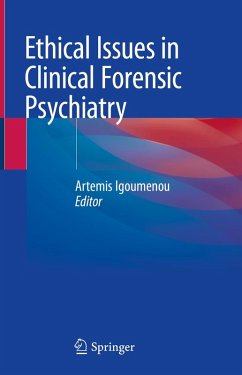This work explores and discusses the ethical dilemmas clinicians face in everyday forensic psychiatry practice. We discuss and reflect on ethical issues involving treatment decisions such as antipsychotic polypharmacy, high doses antipsychotics and prescribing anti-libidinal medications. Ethical issues surrounding the use of technology for the management of mentally disordered offenders are explored in depth. The use of the polygraph test, a controversial method of truth facilitation for sex offenders, is discussed. Similarly, we discuss the use of "tagging" for serious offenders that despite being used in the United States of America for a while it has been heavily criticized and opposed. Tagging is gradually being introduced in the UK and other European countries, making consideration of the ethical issues and dilemmas surrounding its use both timely and necessary. This work is a valuable guide for clinicians working in forensic psychiatry settings, particularly when faced withethical dilemmas concerning decisions around interventions.
Dieser Download kann aus rechtlichen Gründen nur mit Rechnungsadresse in A, B, BG, CY, CZ, D, DK, EW, E, FIN, F, GR, HR, H, IRL, I, LT, L, LR, M, NL, PL, P, R, S, SLO, SK ausgeliefert werden.









